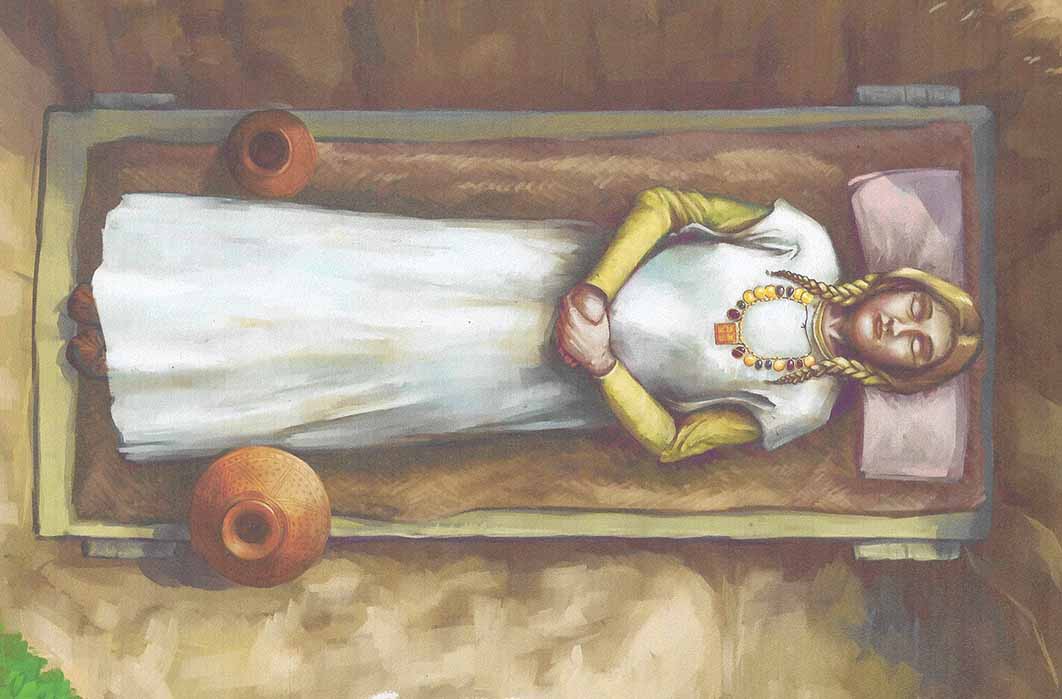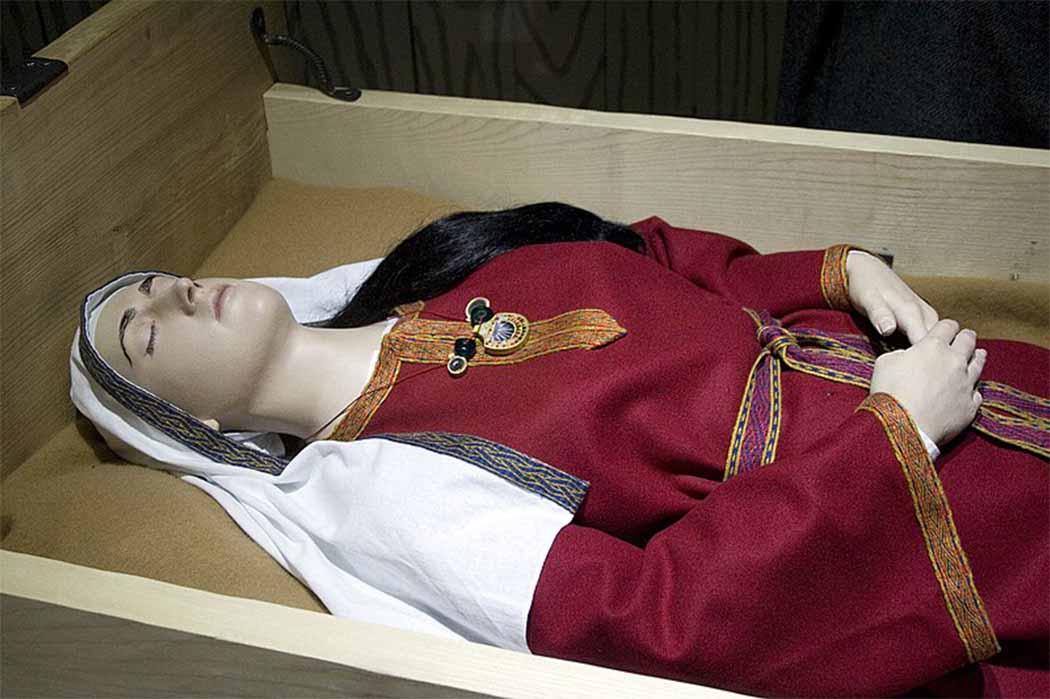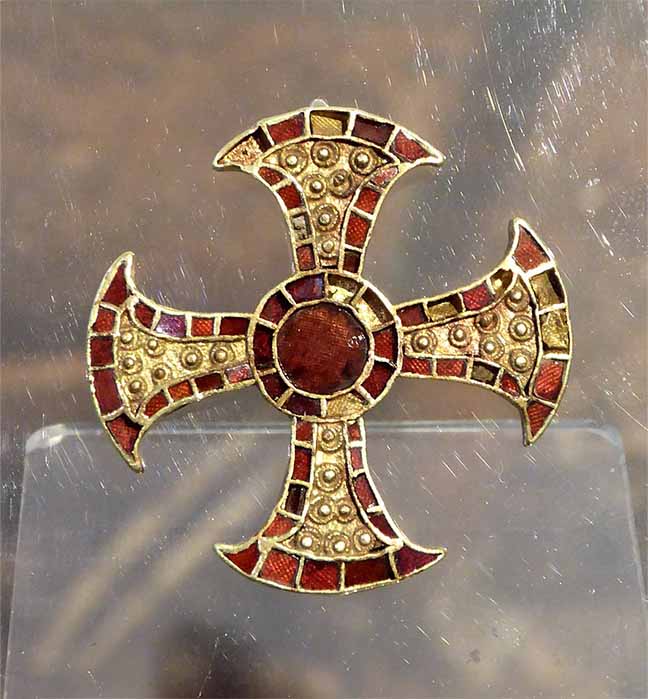
Anglo-Saxon Bed Burials And Grandmother’s Featherbed
In April 2022, a ‘once in a lifetime” British archaeological discovery was made of a rare bed burial, accompanied by grave goods, known as the Harpole Treasure. So important and so vital was it to be carefully guarded from theft, that in every hurried phone call and messaging made during those first few days no-one involved even mentioned the word ‘gold’. Even more dramatic is the fact that this was found at the 11th-hour, on almost the last day of the eight-week dig. Speed was crucial and the day after the discovery two experts from the Museum of London Archaeology took the train to Northamptonshire to review the finds. The grave site turned out to be a rare seventh-century bed burial of a woman. In Old English Harpole means “filthy pool”. The bed did not survive as wood rarely does well underground unless left in a very damp and soggy place. Archaeologists recovered only a few metal pieces which had held the bed together, a few vertebrae bones of the skeleton and grave goods, one in particular which was outstanding. It was a gold necklace, one of the finest Anglo-Saxon jewels to be found in Britain. The Anglo-Saxons seem to have been just as mesmerised with gold and gold jewellery as almost every other ancient civilisation seem to have been.

The moment of uncovering the Harpole necklace (Image: with permission © MOLA)
Anglo Saxon Bed Burials
Most of the 18 bed burials from Saxon times are women’s graves, found either around Cambridge in East Anglia, or over to the west in Wessex which is modern day Hampshire. Wessex originally meant ‘West Saxons’. Both of these were among seven Anglo-Saxon kingdoms which existed by 556.
Mercia, which included Harpole, was another of the seven kingdoms, and eventually it would be Wessex which became most important of all and formed Britain into a single nation. Yet, Harpole was not a known Anglo-Saxon settlement or anywhere near one, and so the discovery opened up a new chapter for everyone involved with the dig. The woman buried in her bed could have been a princess or an Abbess; certainly she belonged if not to royalty then to one of the elite Saxon families as the wealth of her grave goods and burial indicate how important she was. Little was left of the skeleton which had almost all decomposed due to the acidic soil. The woman was accompanied by a superb gold necklace, evidential of the quality and outstanding craftsmanship of the gold.

Replica of the "Saxon Princess" bed burial at the Street House Anglo-Saxon cemetery,lLofus (Prioryman /CC BY-SA 3.0)
Bed burials existed in Europe and Scandinavia from as early as the fifth century, totalling just over 70 graves of a broader group of men, women as well as children. In Britain, Swallowcliffe, Wiltshire was first a Bronze Age barrow from around the year 2,000 BC, repurposed in the seventh century (around the year 700) to hold a Saxon bed burial. Discovered in 1966 the grave was of a young woman. Aged between 18 and 25 she was laid on a bed made of Ash wood with iron bed fittings, surrounded by a variety of grave goods including a pair of exquisite blue/green glass palm-cups. One of the finest items was the gold and silver mount, a disc set on cherry wood which probably decorated a satchel made from leather. The design of the silver and gold repousse foils on the mount form a six-petalled flower. The Swallowcliffe finds are now in the Salisbury Museum.

The Trumpington Cross in the Cambridge University Museum of Archaeology and Anthropology (Ethan Doyle White/ CC BY-SA 4.0)




